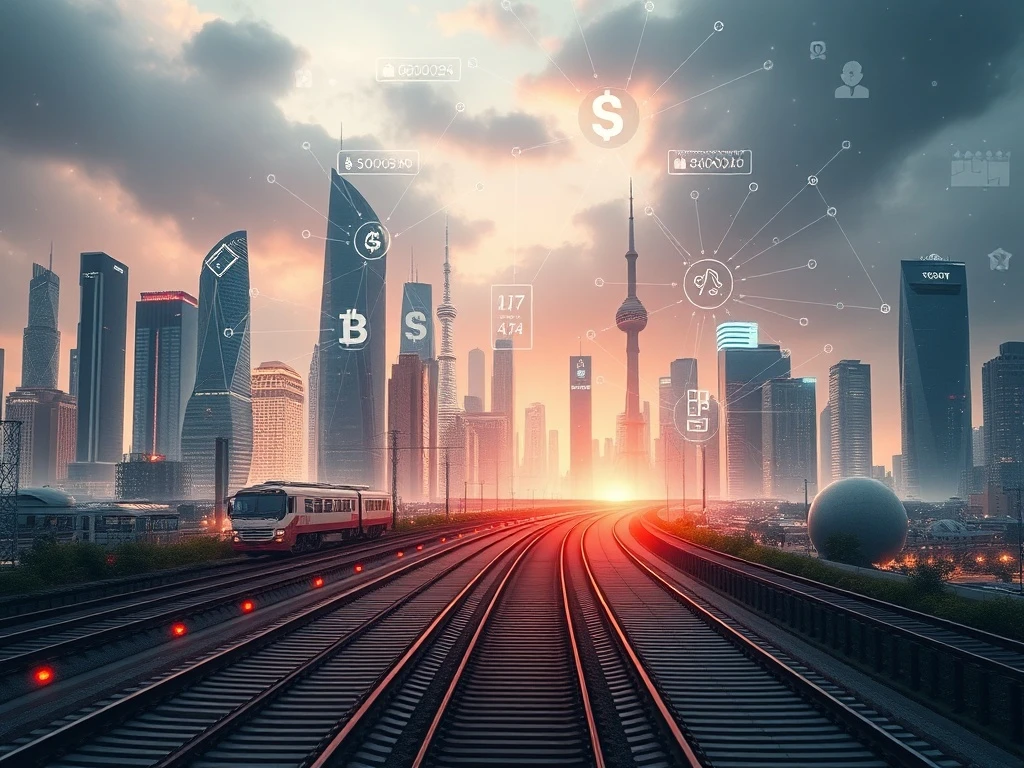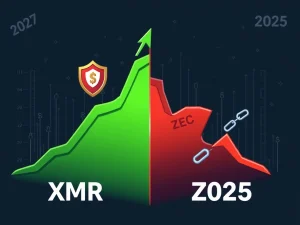Unlocking Capitalism 2.0: How Crypto Revolutionizes Global Finance

Cryptocurrencies are often called Web 3.0. However, this term may underestimate their true potential. A prominent crypto executive argues that crypto represents something far more significant: Capitalism 2.0. This perspective suggests that blockchain technology and digital assets are not merely internet advancements. Instead, they are poised to modernize the entire capitalist system. This profound shift merits close attention from investors and industry observers alike.
Crypto Evolution: Beyond Web 3.0
Mert Mumtaz, CEO of Helius, challenges the common label of crypto as Web 3.0. He believes this description ‘undermines’ crypto’s genuine significance. Web 3.0 focuses on permissionless asset ownership on the internet. Nevertheless, Mumtaz asserts that crypto’s impact extends much further. It aims for a complete overhaul of the existing capitalist system. This broader vision highlights crypto’s transformative power.
Mumtaz outlines several key areas where crypto enhances capitalism:
- Decentralized Information Flow: Crypto enables free information exchange. This occurs without central control.
- Immutable Property Rights: Blockchain ensures secure and unchangeable ownership records.
- Incentive Alignment: Protocols can better align participant incentives. This fosters more efficient systems.
- Enhanced Transparency: Transactions on a public ledger increase visibility.
- Frictionless Capital Flows: Digital assets allow for easier and faster movement of funds globally.
Ultimately, Mumtaz states, “Crypto’s endgame will be that it fundamentally evolves the most impactful human invention of all time: capitalism.” He concludes that crypto is not just Web 3.0; it is truly Capitalism 2.0.
Unlocking 24/7 Capital Markets
Regulatory bodies in the United States are already exploring significant changes. For instance, the Securities and Exchange Commission (SEC) and the Commodity Futures Trading Commission (CFTC) issued a joint statement. This statement teased the possibility of 24/7 capital markets. Such a development would mark a seismic departure from traditional finance. Legacy systems typically operate with limited hours, closing on nights, weekends, and holidays. Therefore, this move could revolutionize how global markets function.
US regulators outlined several points to modernize the financial system:
- Always-On Markets: Enabling continuous trading operations.
- Perpetual Futures Contracts: Establishing frameworks for futures without expiry dates.
- Event Prediction Markets: Regulating markets for predicting future outcomes.
The joint statement highlighted existing continuous markets. These include foreign exchange, gold, and crypto assets. “Further expanding trading hours could better align US markets with the evolving reality of a global, always-on economy,” the statement noted. This initiative suggests a deeper integration of digital assets. It also indicates a migration of legacy financial systems onto internet capital markets. Digital rails, powered by blockchain, facilitate this transition.
Tokenization: A New Era for Assets
A crucial component of this financial modernization is tokenization. This process involves representing real-world financial assets on a blockchain. Tokenized assets offer enhanced liquidity and transparency. Furthermore, they can streamline ownership and transfer. The market for real-world tokenized assets is growing rapidly. It includes a wide range of asset classes.

Tokenized assets can encompass various forms:
- Stocks and bonds
- Fiat currencies, often as stablecoins
- Private credit and real estate
- Art and other collectibles
For example, the Solana Foundation unveiled a roadmap. This plan aims to develop internet capital markets through 2027. Several blockchain companies and traditional financial firms are also launching tokenized products. Robinhood, a mixed brokerage platform, introduced tokenized stock trading in July. This service is available to its European users. These developments underscore the increasing adoption of tokenization across global finance. This transformative trend promises to reshape investment and ownership.
The Future of Global Finance and Crypto Evolution
The shift towards Capitalism 2.0 represents a significant evolution. It moves beyond simply improving internet functionality. Instead, it redefines the very foundations of economic interaction. Crypto technology offers a more efficient, transparent, and accessible financial system. This comprehensive transformation affects everyone, from individual investors to large institutions. The integration of blockchain with traditional finance signals a new era. Therefore, understanding this shift is crucial for navigating future markets.
As regulators explore 24/7 capital markets and tokenization expands, the lines between traditional and digital finance blur. This Crypto Evolution promises to create a more interconnected and dynamic global economy. The vision of a truly global, always-on financial system is rapidly becoming reality. Ultimately, this paradigm shift positions crypto as a fundamental driver of modern capitalism. It ensures a future where financial services are more inclusive and efficient than ever before.









